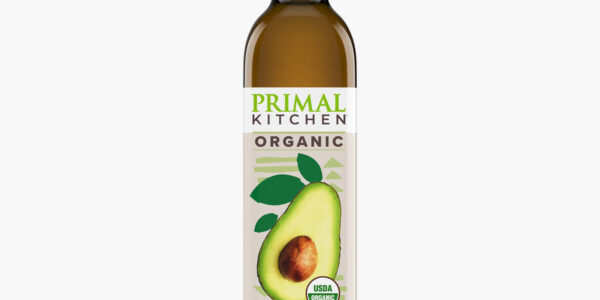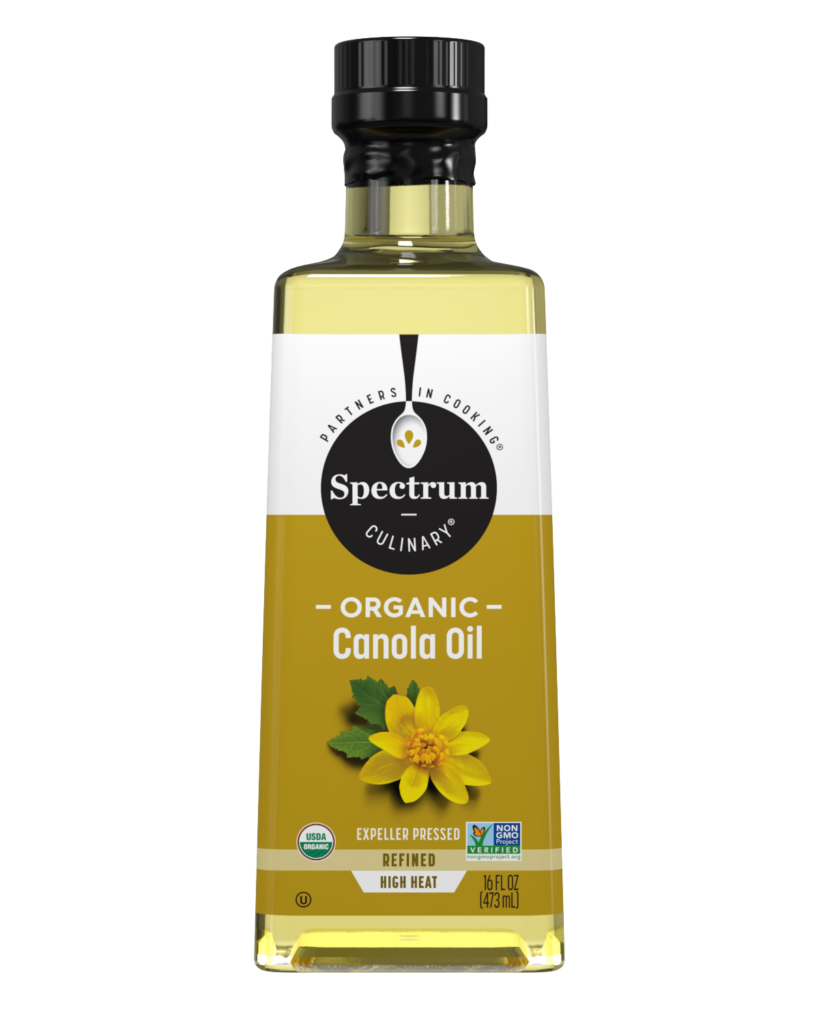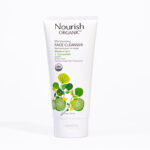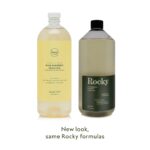Organic Oil: Transform Your Skin Naturally

Introduction to Organic Oil
Organic oil might be your secret ingredient when imagining transforming your skincare routine or enhancing your culinary creations with something purely natural. It’s not just a trend; it’s a lifestyle choice that promises purity and sustainability. When you choose organic oil, you’re opting for a product free from harmful chemicals and rich in natural nutrients. But why should you care about what goes into your skincare or cooking?
Because what you consume or apply on your skin should reflect your commitment to health and well-being. Dive into this article to uncover why organic oil stands out, how it benefits you, and why it’s worth integrating into your daily life. Whether you’re curious about its uses, intrigued by its benefits, or eager to make a change, this guide is your gateway to understanding everything you need to know about organic oil.
Benefits Of Organic Oil For Skin

Types Of Organic Oils
Choosing The Right Oil For Your Skin Type
Choosing the right organic oil for your skin type can transform your skincare routine. Each skin type has unique needs, and the right oil can address them effectively. Organic oils offer natural benefits without harsh chemicals, ensuring your skin stays healthy. Explore the best oils for your skin type below.
Oily Skin
Oily skin needs balance without extra shine. Jojoba oil mimics natural skin oils, reducing overproduction. Tea tree oil fights acne and bacteria, keeping pores clean. Lightweight oils like grapeseed are perfect for hydration without heaviness.
Dry Skin
Dry skin requires intense moisture. Argan oil provides deep hydration and helps with elasticity. Avocado oil is rich in vitamins, nourishing dry patches. Almond oil softens the skin and locks in moisture effectively.
Sensitive Skin
Sensitive skin benefits from gentle oils. Chamomile oil calms irritation and redness, soothing the skin. Rosehip oil offers anti-inflammatory properties, reducing sensitivity. Calendula oil heals and protects, perfect for delicate skin.
Combination Skin
Combination skin needs balance for oily and dry areas. Marula oil hydrates dry patches without clogging pores. Evening primrose oil balances oil production, suitable for mixed skin types. Squalane provides lightweight moisture, ensuring harmony.
Incorporating Organic Oils Into Your Skincare Routine
Incorporating organic oils into your skincare routine enhances natural beauty. These oils provide nourishment and hydration. They suit various skin types and conditions. Organic oils contain essential nutrients and antioxidants. These elements support skin health and radiance. Explore how to integrate these oils into your daily skincare.
Morning Routine
Start your day with a gentle cleanser. This removes impurities without stripping moisture. After cleansing, apply a few drops of organic oil. Choose oils like jojoba or almond. These absorb quickly and offer lightweight hydration. Massage the oil gently into your skin. Follow with a sunscreen to protect from UV rays. This keeps your skin moisturized and shielded.
Evening Routine
End your day with a thorough cleanse. Remove makeup and impurities. Use a nourishing organic oil like argan or rosehip. These oils repair and rejuvenate the skin overnight. Apply the oil after cleansing and toning. Gently massage in circular motions. This enhances absorption and relaxation. Wake up with soft, refreshed skin.
Weekly Treatments
Incorporate weekly treatments for deeper nourishment. Use organic oils in face masks or scrubs. Mix oils like coconut or avocado with honey or oats. This creates a hydrating mask. Leave it on for 15 minutes, then rinse. Your skin feels smooth and revitalized. Regular treatments enhance skin texture and glow.
Diy Organic Oil Blends
Crafting DIY organic oil blends offers a personal touch to skincare routines. Mix essential oils for natural beauty. These blends provide nourishment and hydration, enhancing your skin’s glow. Enjoy the benefits of pure ingredients in your daily regimen.
Are you ready to transform your skincare routine? DIY organic oil blends offer a natural, customizable way to enhance your skin’s health. Creating your own blends allows you to tailor the ingredients to your specific needs, and it can be a fun, rewarding process. You might wonder which blends are right for you. Let’s dive into some incredible options you can try at home.
Anti-aging Serum
Looking to slow down the clock on your skin? Try mixing a few drops of rosehip oil with jojoba oil. Add a drop of frankincense essential oil for its rejuvenating properties. Apply this serum nightly to reduce fine lines and promote a youthful glow. Have you ever noticed how some products leave your skin feeling greasy? This blend absorbs quickly, leaving your skin feeling soft without the oily residue. Plus, it’s much more affordable than commercial serums.
Moisturizing Body Oil
Does your skin feel dry and itchy, especially during the colder months? Create a moisturizing body oil using sweet almond oil as the base. Add a few drops of lavender and chamomile essential oils for a calming effect. After a warm shower, massage the blend onto damp skin to lock in moisture. This not only nourishes your skin but also provides a relaxing aroma that can help you unwind after a long day. Imagine a spa-like experience in the comfort of your own home.
Acne-fighting Blend
Struggling with breakouts? An acne-fighting blend might be just what you need. Start with tea tree oil, known for its antibacterial properties. Mix it with a carrier oil like grapeseed oil, which is lightweight and won’t clog pores. Apply this blend sparingly to affected areas. It’s a natural alternative to harsh acne treatments and can be a game-changer for your skincare routine. Have you considered the benefits of using fewer chemicals on your skin? This blend offers a simple yet effective solution. DIY organic oil blends empower you to take control of your skincare. Which blend will you try first? Share your thoughts in the comments!
Common Myths About Organic Oils
Organic oils have gained popularity for their natural benefits, but misconceptions often cloud their true potential. Understanding these myths can help you make informed choices and harness the full benefits of organic oils. Let’s debunk some common myths and see how these oils can truly enrich your life.
Myth 1: Organic Oils Are Too Expensive
Many believe organic oils are out of reach financially. It’s true that some organic oils can cost more than their non-organic counterparts. However, the quality and purity often justify the price. Consider the long-term benefits on your skin or hair; investing in organic options may save money on treatments later.
Myth 2: Organic Oils Don’t Have A Long Shelf Life
There’s a belief that organic oils spoil quickly. While they don’t contain synthetic preservatives, proper storage can extend their life. Keep them in cool, dark places. Remember, freshness is key to maintaining their efficacy. It’s similar to storing fresh produce; treat your oils with care, and they will serve you well.
Myth 3: Organic Oils Are Only For Cooking
Organic oils are versatile. They’re not limited to the kitchen. From skincare to aromatherapy, their uses are vast. I once added organic coconut oil to my skincare routine and noticed a significant change. Have you explored organic oils outside cooking?
Myth 4: All Organic Oils Are The Same
Assuming all organic oils provide identical benefits is misleading. Each oil has unique properties. Argan oil is excellent for hair, while jojoba is perfect for skin. Research the specific benefits of each oil. Tailor your choices to your needs for optimal results.
Myth 5: Organic Oils Are Greasy
People often worry organic oils leave a greasy residue. In reality, many are light and absorb quickly. It’s all about finding the right oil for your skin type. Experiment with small amounts to see how your skin responds. Have you tried oils that suit your skin better?
Breaking these myths can open up a world of possibilities with organic oils. Consider what you’ve learned and how it might change your approach. What misconception surprised you the most? Could organic oils be the solution you’re looking for?
Sourcing And Storing Organic Oils
Organic oils have become a staple in many households, praised for their versatility and health benefits. However, ensuring these oils remain effective requires knowing how to source and store them properly. In this section, we’ll explore finding quality oils and the best practices for storing them to maintain their purity and potency.
Finding Quality Oils
Quality is key when selecting organic oils. Look for oils with certifications like USDA Organic to ensure they meet strict standards. Consider visiting local farmers’ markets where you can often find oils directly from producers. This not only supports small businesses but also allows you to ask questions about their production methods.
Have you ever found yourself overwhelmed by the array of oils at a health store? You’re not alone. Reading labels and researching brands can help you make informed choices. Ensure the oil is cold-pressed, as this method preserves nutrients and flavor.
Proper Storage Techniques
Storing organic oils correctly is crucial to maintaining their quality. Keep oils in a cool, dark place like a pantry or cupboard. Exposure to light and heat can degrade them, reducing their effectiveness.
Consider using dark glass bottles for storage. This minimizes exposure to light, further preserving the oil’s integrity. Have you noticed a change in taste or smell in your oils over time? This could be a sign of improper storage.
What steps are you taking to store your oils correctly? Ensuring the bottle is sealed tightly after each use prevents air from spoiling the oil. Regularly check for expiration dates and rotate oils to use older ones first.
By sourcing oils wisely and storing them correctly, you can enjoy their benefits to the fullest. How do you ensure the oils in your kitchen stay fresh and potent?

Potential Side Effects of Organic Oil And Precautions
Organic oils are popular for their natural benefits. They are often used in skincare, cooking, and wellness routines. Despite their advantages, it’s important to be aware of potential side effects and take precautions.
Potential Skin Irritations
Some individuals may experience skin irritations. These can include redness or itching. It’s wise to do a patch test before using a new oil. This helps ensure it suits your skin.
Allergic Reactions
Allergic reactions are possible with organic oils. Symptoms might include swelling or rashes. If you notice any unusual reactions, stop using the oil. Consult a healthcare professional if needed.
Digestive Issues
When consumed, oils might cause digestive issues. Some people feel nausea or stomach discomfort. Start with small amounts to see how your body reacts.
Interactions With Medications
Organic oils can interact with medications. This might affect how your medicine works. Always check with your doctor if you’re on medication and using oils.
Precautions For Pregnant Women
Pregnant women should be cautious with organic oils. Some oils are not recommended during pregnancy. It’s best to seek advice from a healthcare provider.
Storage And Shelf Life
Proper storage of oils is essential. Keep oils in a cool, dark place. This helps maintain their quality and extends shelf life. Check expiry dates before use.

Frequently Asked Questions on Organic Oil
What Is An Organic Oil?
Organic oil is extracted from plants grown without synthetic pesticides or fertilizers. It is natural and chemical-free. These oils retain more nutrients and purity, making them ideal for skincare and cooking. Choosing organic oils supports sustainable farming and promotes health benefits.
What Is The Healthiest Organic Oil?
The healthiest organic oil is extra virgin olive oil. It is rich in antioxidants and healthy monounsaturated fats. Coconut oil is another excellent choice, offering medium-chain triglycerides that boost energy. Both oils support heart health and have anti-inflammatory properties. Choose cold-pressed varieties for maximum benefits.
What Are Organic Oils Good For?
Organic oils nourish skin, promote hair health, and offer antioxidant protection. They hydrate, soothe, and improve overall wellness. Essential nutrients in organic oils support natural healing and enhance beauty routines. Their versatile uses include cooking, aromatherapy, and massage, offering a natural approach to health and beauty.
What Are Some Organic Oils?
Organic oils include coconut oil, olive oil, jojoba oil, argan oil, and almond oil. These oils are natural and beneficial for skin and hair care. They often contain vitamins and antioxidants, promoting healthy and nourished skin. Ensure the oils are certified organic for quality assurance.
Conclusion to Organic Oil
Exploring organic oil benefits can transform your daily routine. It’s natural, safe, and versatile. These oils support skin, hair, and overall health. They offer a chemical-free alternative to synthetic products. Many people report improved well-being with regular use. Interested in trying organic oil?
Choose one that fits your needs. Remember to check labels for purity. A small change can lead to noticeable results. Enjoy the simplicity and effectiveness of organic oils. Your body and environment will thank you. Embrace this natural path to wellness with confidence and ease.




Leave a Reply